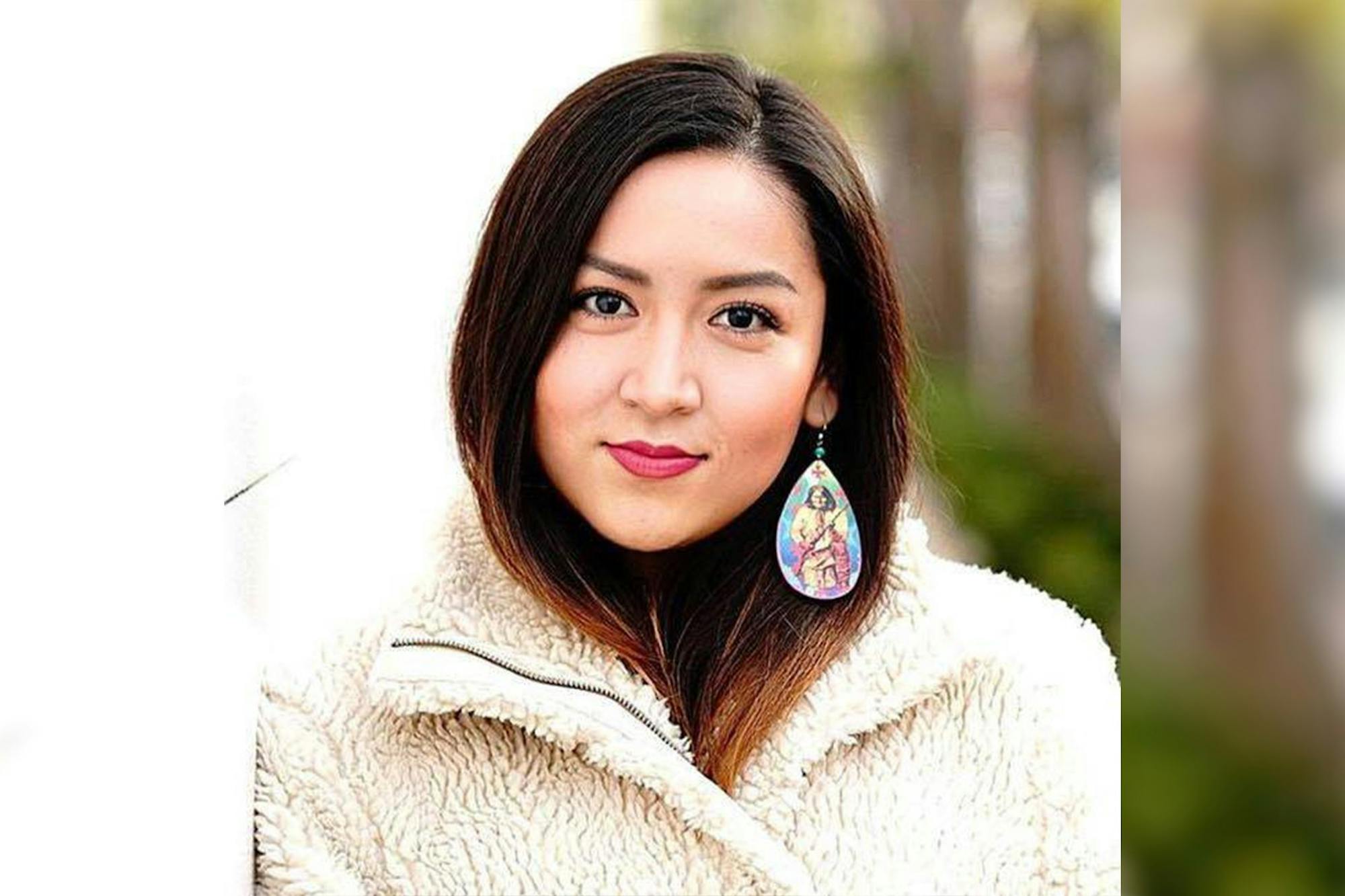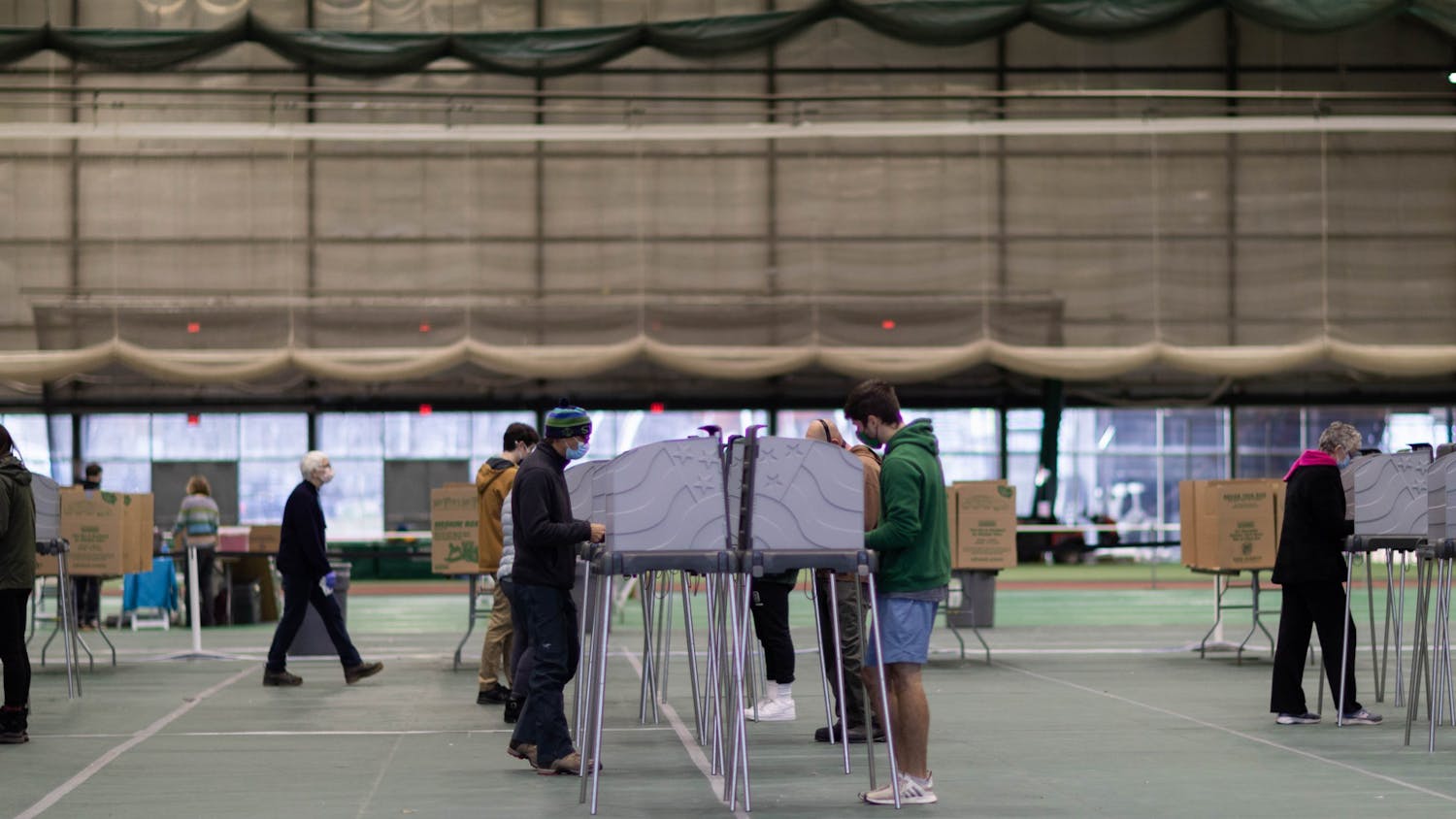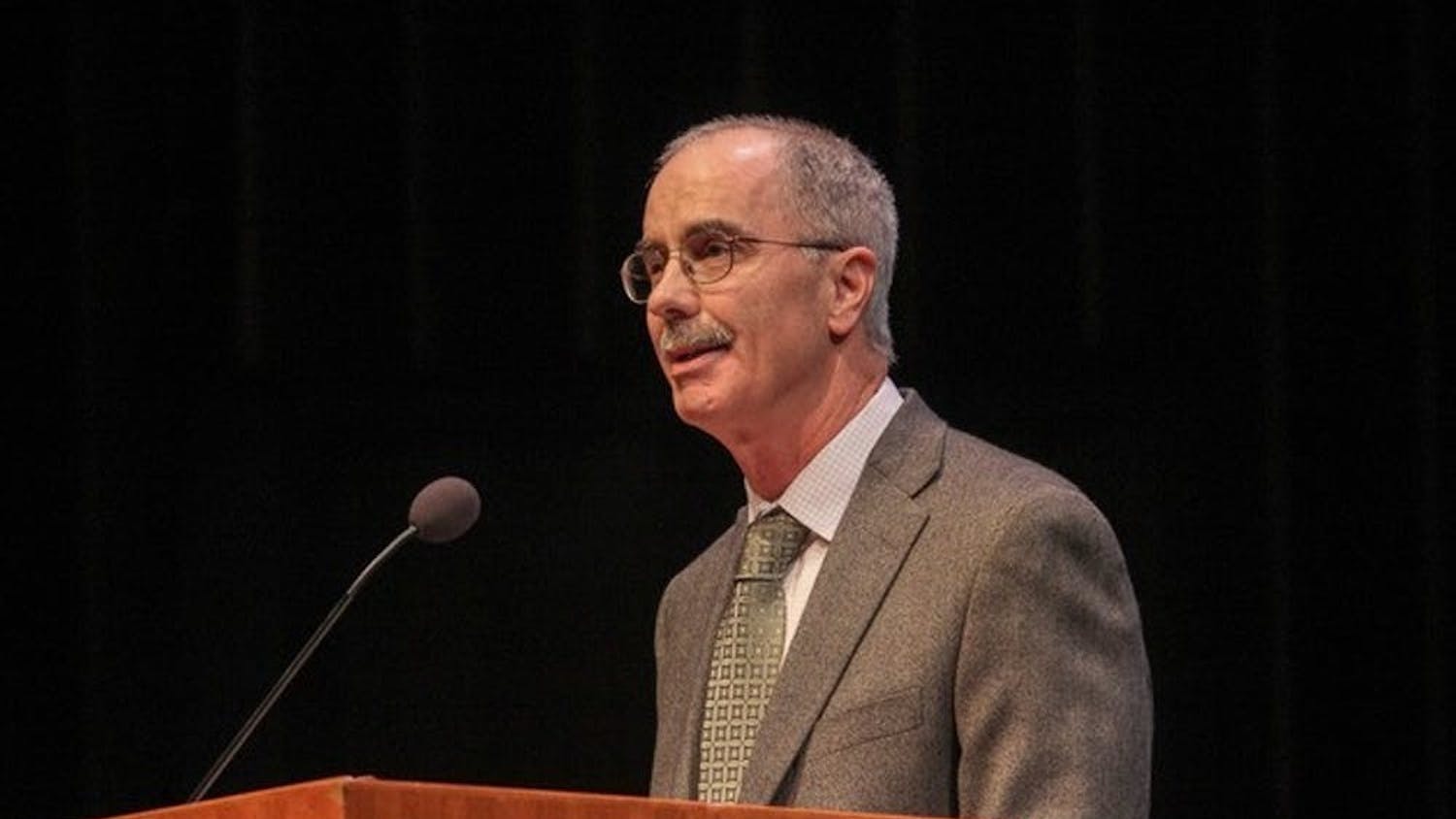Twelve years ago, Allie Young ’13 left her home in the Diné, or Navajo Nation, to attend Dartmouth, feeling lost and still mourning the death of her teenage brother. Now, she is one of the nation’s leading advocates for Indigenous youth.
Young is the founder and director of Protect the Sacred, an initiative started during the pandemic to empower Navajo youth to connect with their elders and be their community’s next leaders. She also works with Harness, a nonprofit where she combines her storytelling with community activism, and leads a book club, Well-Read Native, which recognizes Indigenous voices in academia.
On Jan. 28, the College honored Young at Dartmouth’s Social Justice Awards for her work in bringing authentic representation of Native Americans to mainstream media. Young spoke with The Dartmouth to discuss her time as an undergraduate student, her work at Protect the Sacred and her hopes for Indigenous youth under the Biden administration.
What did you study, and what was exciting or challenging during your time at Dartmouth?
AY: I was a film and media studies major. I took a film class, and I was like, “This is what I love.” I remember coming out of that class knowing that's what I wanted to do and that I could have an impact as a storyteller and connect with people that way. Once I found that passion and started going in that direction, I had a really great experience at Dartmouth.
But the challenging part was going into Dartmouth because it's not that easy being a Native American student from the Southwest. I remember showing up on campus with my three bags and having to get across campus on my own, whereas my roommates traveled there with their parents. And so it was an adjustment. I was also still very much grieving the loss of my brother. In all of my work throughout Dartmouth, it revolved around my brother, like papers I was writing for my classes. My Dartmouth experience was a healing process for me.
What plans did you have for yourself after graduation?
AY: I didn’t know exactly what I wanted to do. There are just so many different ways to go within the industry. But I knew I wanted to head out west. My adviser, professor Mark Williams from the film and media studies department, knew of my plans to get out to Los Angeles and knew that I was struggling to move out there. So he actually presented an opportunity to me: They were having their first FSP in the department in LA, and he was hosting it. He reached out to me and asked if I wanted to be a part of it. It opened many doors for me. I found an internship at Jennifer Lopez Enterprises, and then I got to attend all of the events that were lined up. I met Phil Lord ’97, Chris Miller ’97 and Shonda Rhimes ’91, and I really expanded my network out there.
From there, I found a job as a production assistant through a ’14. The Dartmouth network out in LA is pretty small, but we all help each other. It’s really great and very supportive. She hooked me up with a PA gig at Nickelodeon on a live-action show “The Thundermans.” They asked me to come back on full-time, and then I was promoted to show runner’s assistant. I did that for over a year.
It was after that I transitioned out of entertainment, and I’ve been in the nonprofit world ever since.
What is Protect the Sacred, and what inspired you to start this initiative in March?
AY: Protect the Sacred is a grassroots initiative that was formed to engage Diné at the time, but now all Native American youth to help them reconnect to our culture and to protect what is sacred — that is, our elders. They hold our ancestral knowledge, our languages and all the things that we're still learning from them. They are the most vulnerable in this pandemic. And seeing that very early on was alarming to me because throughout history, our people and our population were decimated. We now only make up 2% of the population. And so we have to step up in this moment to protect the little that is left of our languages, our cultures and our ceremonial ways.
I don't want to overlook the work that's been done the last 10 to 15 years around language revitalization and restoration, because a ton of work has been done around that. But with what we're experiencing right now, there's definitely a threat of a setback.
We’ve used social media, and all the ways that our Native youth engage nowadays, to revitalize and represent us as a people. We've been making Protect the Sacred to call out for medical volunteers and funding towards the Navajo Nation.
You’ve also started another initiative — Ride to the Polls — to encourage Diné voter turnout. What was the concept behind the initiative, and what did it represent to the Diné community?
AY: Ride to the Polls is rooted in our culture specifically as a people because of how we revere the horse and how horses are used in our ceremonies. We believe the horse is resilient and strong. And also, it was something my father and I have done since I was a little girl. Our bonding activity was riding horses and doing trail rides.
Ride to the Polls was me thinking about how to best engage our Native youth to vote, whom I know are more educated than ever. We saw that our youth were resistant to participating in this colonial system, which is the electoral process. They're like, “Well, why are we participating in a system that has never worked for us?” — which is a very valid point. But because we were entering the most important election election of our lifetime, it was absolutely important for us to show up and to contribute and to be represented at this time. As a people whose votes have been suppressed for many decades, that we still showed up — and to say that we're still here — was very important to me. I think that we got the message across. It was really beautiful to see people be inspired by it.
Political analysts have highlighted the increase in Indigenous voting, not just in Arizona — but in other states such as New Mexico and Wisconsin — as a contributor to Joe Biden’s victory. To you, what does the increase in Indigenous voting represent to Indian country?
AY: The fact that we were able to do that not just in one state, but in numerous states where Indigenous votes were key to Biden’s win is encouraging. It represents our resilience. When you take a step back and think about the history of this country as it relates to Indigenous people, it’s not pretty. It gives me great hope that Indian country is finally being seen in a country where we are the first peoples, but invisibility has suppressed us. I think that's something that’s been true for far too long. The Biden-Harris administration has nominated Rep. Deb Haaland, D-N.M., as Secretary of the Interior. The Department of the Interior has never had a Native person lead it, and I always wondered why, because it should be a Native person. We’re seeing a time in this country that Native peoples are receiving the recognition that we should be receiving and holding decision-making positions.
How did you feel about being honored in Dartmouth’s Social Justice Awards?
AY: I feel blessed to be honored. It’s really nice to be recognized and acknowledged for my work, especially at Dartmouth, my alma mater, where a lot of my work began. I found my voice in my Dartmouth experience. And so to have them come back in and honor me in that way is really special. They invited me to speak on this panel where we talked about doing Native land acknowledgments, and I had conversation with folks that serve up the institution to hopefully normalize it across campus. For me, it was special considering the history of Dartmouth concerning Native American students and why it was founded. It was an honor to have someone like Native American studies professor N. Bruce Duthu be the moderator. I was posting about it on social media. It’s something that I'll hold in my heart forever.
This interview has been edited and condensed for clarity and length.
Daniel Modesto ’24 is the News executive editor. He is from Brooklyn, New York, and is a Native American and Indigenous Studies major modified with Latin American, Latino and Caribbean Studies.




